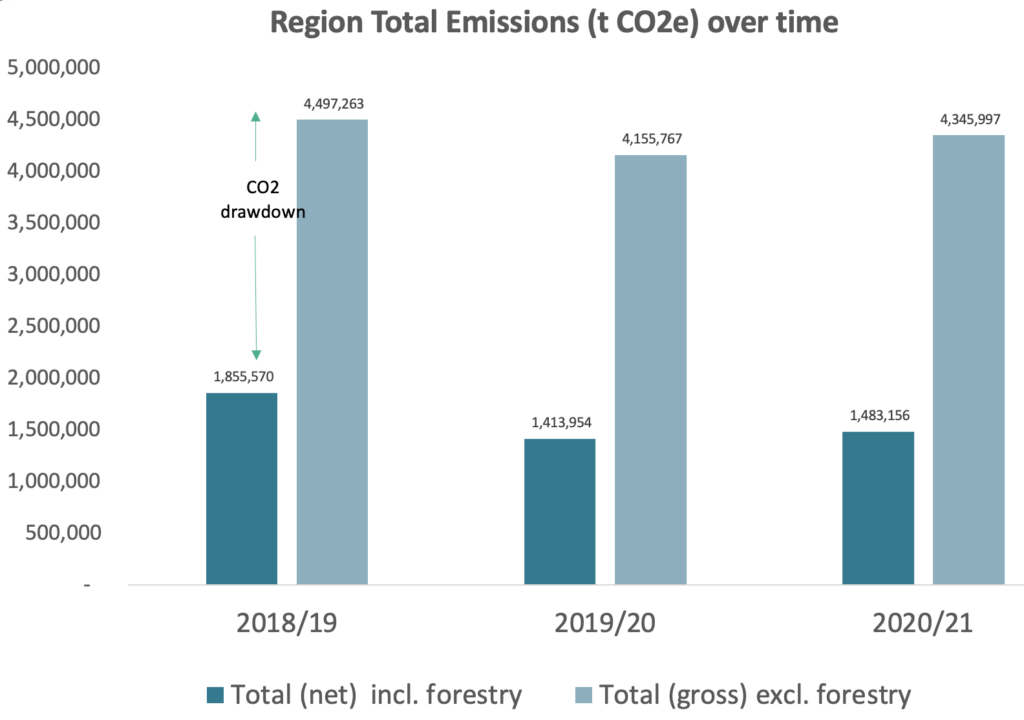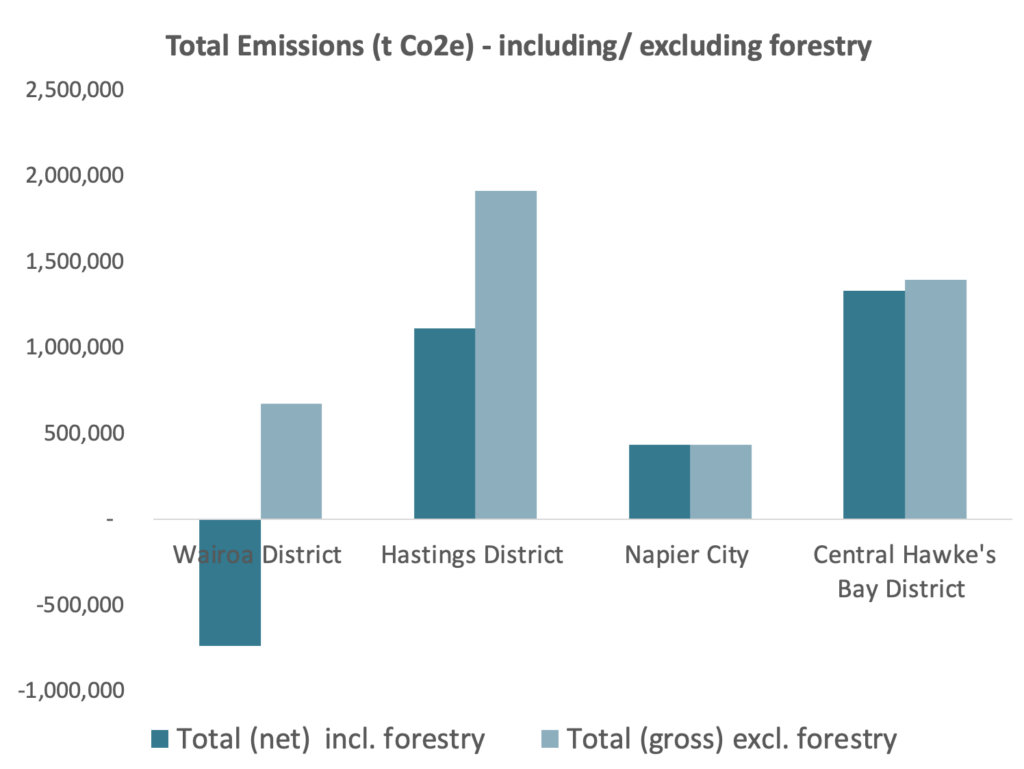HBRC councillors received an update on Wednesday on work underway to formulate a climate action plan for the region.
For starters we now have detailed accounting of GHG emissions for the region, broken down by territorial authority (Carbon Community Footprints), providing a solid, granular understanding of how our region’s emissions are produced. This gives us the essential benchmark and blueprint for identifying mitigation and adaptation opportunities and measuring future progress. These Footprints will be online shortly.
Our region’s emissions have been fairly steady in recent years.

HBRC has set a regional goal for net zero carbon by 2050. But as with our still-awaited National Plan, any serious tackling of climate change impact must include all greenhouse gases, and particularly the methane emissions associated with our current farming practices.
The paper prepared by Climate Action Ambassador Pippa McKelvie-Sebileau recognises this:
“We propose that priority be given to reducing gross emissions of all greenhouse gases. With regard to biogenic methane emissions (ruminant animal emissions), we propose to follow the national He Waka Eke Noa approach with a focus on support for landowners and farmers across the region to achieve these nationally set targets.”
Farmers and growers throughout NZ are anxiously awaiting the Government’s final call on how it will treat agricultural emissions. And with farm emissions representing 67% of Hawke’s Bay’s gross emissions, it’s a problem our regional climate strategy cannot ignore.
Another key strategic issue facing Hawke’s Bay and New Zealand is the use of ‘offsets’ to ‘reduce’ any entity’s (HB, NZ, Air NZ, Napier Port etc) emissions profile. In NZ and Hawke’s Bay, the most obvious and available offset is carbon sequestration via pine forests.
Our NZ Climate Commission Chair, Dr Rod Carr, refers to this as “plant and pollute”. His point is that we need to focus urgently on actually reducing gross emissions, not continuing BAU and band-aiding that by temporarily sequestering carbon in pine trees. This is another sticky issues that the Government must finally address by year-end.
Is the treatment of offsets important to Hawke’s Bay? Consider this chart.

As you can see, the emissions profile of each of our communities (excepting Napier, no trees!) clearly ‘improves’ when forestry offsets are taken into account.
But ‘plant and pollute’ is no long term solution to curbing global warming.
The HBRC paper says, thankfully: “We propose that emissions reductions are considered separately to offsetting/sequestration conversations so that priority is given to reducing emissions and sequestration is reserved only for essential emissions.” Some wiggle room there, but still …
Amen!
The Plan presented this week outlines the community-wide planning and engagement that will now begin across all sectors. Look for a big splash event in November.
The only fly in the ointment is the paper’s tentative proposal to vest governance authority for the regional climate initiative in the Matariki Governance Group. You’ve heard of them, right?! Performance and transparency-wise, Matariki remains an unproven black hole … heaps of lofty aspirations of all sorts but with little action to show. And no identity to the public. The single programme document on its website — Matariki Action Plan: A Living Document — was written in 2019.
Several Councillors, looking for a bit more urgency, pushed back on this and hopefully wiser thinking will prevail.
An effective Climate Action Plan for HB must have a strong, driver with singular unrelenting focus, requisite expertise, relevant networks … and clear political accountability and visibility to the public. That driver – as our five councils have already agreed – must be the Regional Council.
Stay tuned on that one!


I’m sorry but will believe when I see it. This council still appears self serving.
For a start remove to offensive water bottling plant from Awatoto etc, all water bottling plants in Aeotearoa should be illegal. Removal of water from our precious under ground aquifer and disgusting plastic bottles…to go into some other countries landfill. Insanity at its best. Do we take no responsibility, globally?
Secondly, the removal of ANY trees in the city scape should need a permit. It’s criminal in my eyes, when driving around Napier suburbs, how many butchered trees you see in the suburbs and the ones removed by I’m assuming this council, in the streets. Heart breaking.
Living semi-rural, it keeps amazing me that orchardists -and others- are still burning prunings etc etc (including empty (???) chemical containers), with or without HBRC permit. Europe move on from that some 30+ years ago!